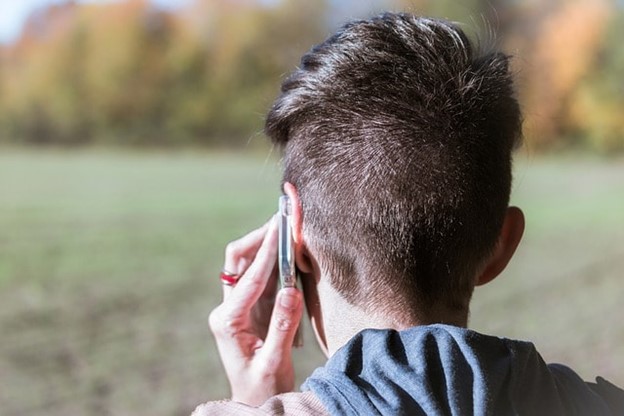Looking at Military Insurance Coverage for Hippotherapy Services for Traumatic Brain Injury
As an insurance and behavioral health expert, I’ve had the privilege of working with numerous individuals and families navigating the complex world of mental health treatment options. One of the most innovative and effective approaches I’ve seen is equine therapy.
But, as with any form of treatment, the question on everyone’s mind is: “Will my insurance cover it?”
Specifically, does TRICARE cover equine therapy?
The Defense Health Agency, which oversees TRICARE, plays a crucial role in determining coverage policies for various treatments, and we will break down how this works in our latest resource.
In this article, we’ll delve into the world of equine therapy, explore its benefits, and examine TRICARE’s coverage policies.
So let’s get started with our newly updated blog from TriCareRehabs.com now!
What is Equine Assisted Therapy?
Equine therapy, also known as equine-assisted therapy (EAT), is a form of experiential therapy that involves horses in the treatment process. It’s a collaborative effort between a licensed therapist, an equine specialist, and the client. Through activities like grooming, feeding, and riding horses, individuals can develop essential life skills, work through challenges, and improve their mental well-being.
Equine therapy includes equine-assisted psychotherapy, which is beneficial for conditions like anxiety disorder, bipolar disorders, and ADHD.
Equine therapy has been successfully used to treat a range of mental health conditions, including:
- Post-traumatic stress disorder (PTSD)
- Anxiety and depression
- Attention deficit hyperactivity disorder (ADHD)
- Autism spectrum disorder (ASD)
- Substance abuse conditions including alcohol abuse & drug addiction
How Does Equine Therapy Work?
Equine therapy is built on the principles of experiential learning, which means individuals learn by doing. It can be considered an exercise program that offers physical activity to individuals with disabilities, helping improve various aspects such as balance, posture, and coordination.
The bond between humans and horses is unique, and the therapeutic benefits of this relationship are multifaceted:
- Trust and communication : Horses respond to nonverbal cues, teaching individuals to communicate effectively and build trust.
- Emotional regulation : Interacting with horses helps people develop emotional awareness and regulation skills.
- Empathy and compassion : Caring for horses fosters empathy and compassion, translating to improved relationships with others.
- Self-awareness and confidence : Equine therapy helps individuals develop a sense of self-worth and confidence. It also aids in developing a positive attitude and a sense of accomplishment.
TRICARE Coverage: What You Need to Know from the Defense Health Agency
TRICARE is the health insurance program for military personnel, veterans, and their families. Coverage policies can be complex, but let’s break it down:
- TRICARE’s Stance on Equine Therapy : TRICARE considers equine therapy an “alternative” or “complementary” treatment, which means it’s not explicitly covered under the standard benefit package. However, TRICARE may cover non-medical services if prescribed by a physician.
- Possible Coverage Options : However, TRICARE may cover equine therapy as part of a comprehensive treatment plan for specific conditions, such as PTSD or ASD, if:
- A licensed therapist or healthcare provider recommends it.
- It’s part of a TRICARE-authorized treatment program.
- You have a TRICARE referral and prior authorization. TRICARE covers only the professional services provided by specific provider types. Coverage may also depend on whether the condition is a primary or secondary diagnosis.
How to Get TRICARE to Cover Equine Therapy
While TRICARE’s coverage is not guaranteed, you can take steps to increase the likelihood of approval:
- Work with a TRICARE-authorized provider : Ensure your therapist or healthcare provider is part of the TRICARE network. It is important to have a certified occupational therapist involved in the treatment plan. TriCareRehabs.com can help in this regard, call directly for immediate referrals.
- Getting a referral and prior authorization: A mental health counselor can play a crucial role in providing equine-assisted psychotherapy, helping clients with various diagnoses build a bond with the horses and improve their mental health.
- Document everything : Keep detailed records of your treatment plan, progress, and any communication with TRICARE.
- Appeal if necessary : If your claim is denied, file an appeal and provide supporting documentation.
Reach Out for a Holistic Treatment Experience Today
Equine therapy is a powerful tool for mental health treatment, and while TRICARE’s coverage is not a guarantee, it’s not impossible either. By understanding the benefits of equine therapy and navigating TRICARE’s coverage policies, you can increase the chances of getting the treatment you need.
Remember, mental health treatment is an ongoing process, and exploring innovative approaches like equine therapy can lead to life-changing breakthroughs. Keep a bookmark on TriCareRehabs.com for the latest in behavioral health support for our veterans and military families – and don’t be afraid to saddle up and explore the possibilities with equine therapy today!
FAQs on Equine Therapy Coverage Using TRICARE
What is the cost of equine therapy without TRICARE coverage?
Costs vary depending on location, therapist, and frequency of sessions. Expect to pay between $50 to $150 per session.
Can I use other insurance plans to cover equine therapy?
Yes, some private insurance plans may cover equine therapy. Check with your provider to determine coverage and eligibility.
How do I find a TRICARE-authorized equine therapy provider?
Visit the TRICARE website or contact your regional TRICARE office for a list of authorized providers in your area.
What role do therapeutic riding centers play and what services do they offer?
Therapeutic riding centers provide equine-assisted therapy to veterans, active duty, and guard members. They offer services that include assistance through insurance programs, serving veterans and children with various diagnoses or needs, and improving mental health and well-being through bonding with horses.
How does equine therapy benefit local veterans and prior military clients?
Equine therapy programs at therapeutic riding centers help local veterans and prior military clients by providing a chance to relax, breathe, and build a bond with horses. This helps address anxiety, PTSD, and other mental health challenges, creating a supportive environment for veterans and their families.
How do equine therapy programs serve veterans with traumatic brain injury?
Equine therapy programs cater to veterans with traumatic brain injury by offering an alternative approach to traditional therapy. These programs help veterans with PTSD and other mental health disorders through equine-assisted therapy, which can be more engaging and effective than typical in-office therapy.
How does equine therapy compare to typical in-office therapy?
Equine therapy offers a more free-flowing and less rigid setting compared to typical in-office therapy. The presence of a horse as part of the therapy team and the opportunity to bond with the horse can provide unique therapeutic benefits that traditional office-based therapy may not offer.
- Is There a National Guard Substance Abuse Program? - December 29, 2025
- Marine Corps Substance Abuse Program Guidance - December 8, 2025
- Does Spice Show Up on a Military Drug Test? - December 2, 2025



